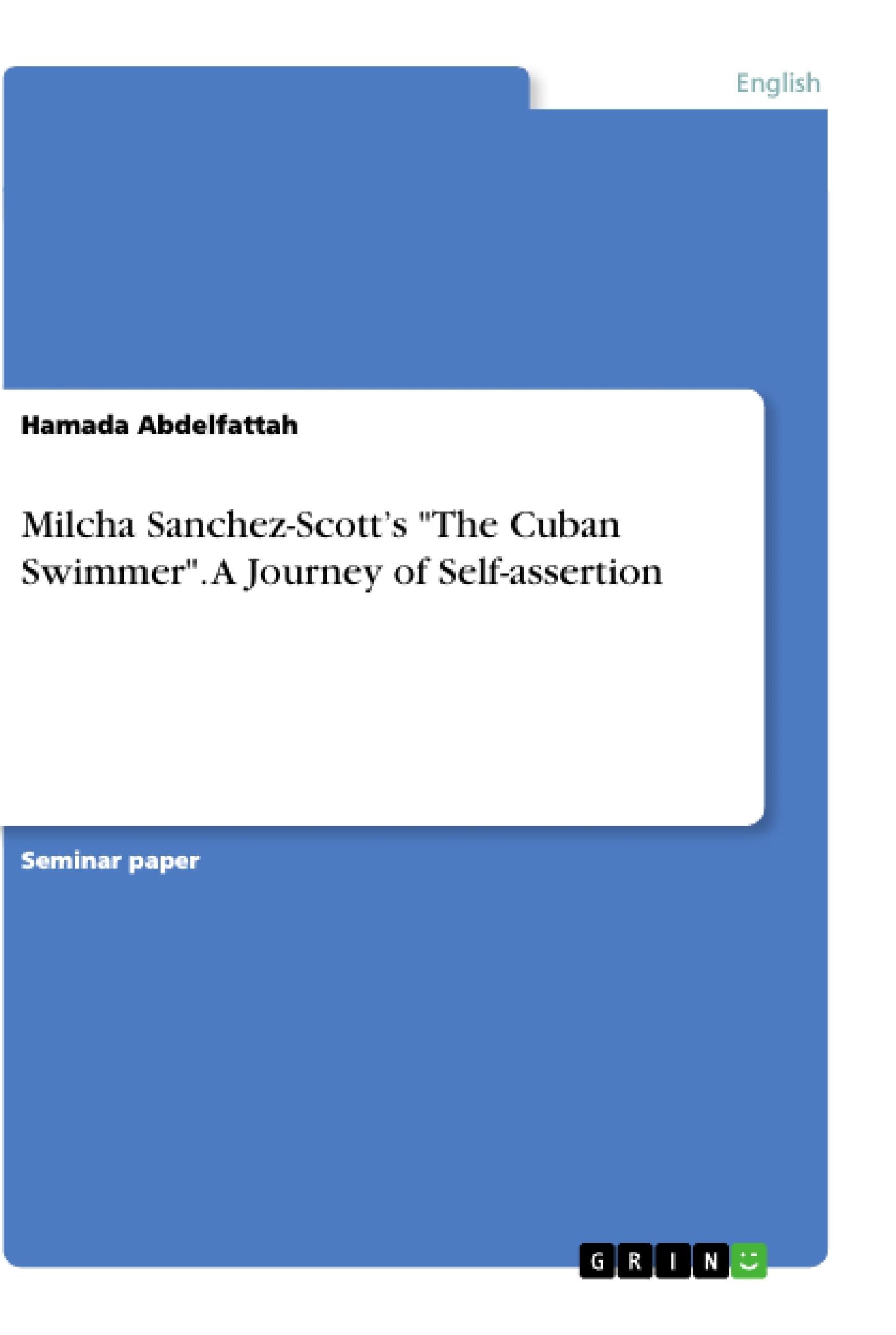"The Cuban-swimmer" is a seven-scene play in which Milcha Sanchez-Scott depicts the individual’s need of self assertion as a major theme. Self assertion, according to her, is a metaphor standing for one’s true identity, a symphony combining one’s individuality as well as one’s cultural legacy. The play follows the life of the Suarezs, a displaced Cuban family who rode the ocean to take refuge in the United States. They have migrated from Cuba in search of a secure sense of self-worth. The central character among these people is Margarita Suarez, a nineteen-year-old Cuban girl, who tries to win a swimming race in the ocean as a Cuban not as an American. Margarita takes part in this race in search not only of the “Cuban pride” but also of her own self-assertion. In her play, Sanchez-Scott uses Margarita’s story as an allegory for the whole immigration experience which Latin Americans had to go through.
Milcha Sanchez-Scott was born in a multicultural family. Her father was a Colombian man who lived in Mexico; her mother is Indonesian with Chinese-Dutch roots. Jane T. Peterson holds that “her [Milcha’s] heritage reflects a diversity of ethnic and cultural influences”. She is regarded as a playwright of powerfully expressive plays. Her works consistently reflect her concern with racial and political issues, particularly with the Latin woman’s struggle for spiritual survival. Latin American heritage and the sense of this culture form the ultimate base of Sanchez-Scott’s material. Much of her writing reveals her concern for Latin women and their families. Peterson is clear about the idea that “Milcha Sanchez-Scott’s work frequently explores woman’s experiences in Hispanic-American bicultural context”.
Table of Contents
- Abstract
- Milcha Sanchez-Scott's Biography and Her Plays
- The Cuban Swimmer: A Model Subjective Play
- A Critical Analysis of The Cuban Swimmer
Objectives and Key Themes
This essay provides a critical analysis of Milcha Sanchez-Scott's play, "The Cuban Swimmer," exploring its themes of self-assertion and the immigrant experience. It examines how Sanchez-Scott uses the play to highlight the struggles and triumphs of Latin Americans navigating cultural identity and achieving self-acceptance within a dominant white American society.
- Self-Assertion as a Metaphor for Identity
- The Immigrant Experience and Cultural Identity Crisis
- The Role of Racism and Discrimination in Alienating Latin Americans
- The Importance of Connecting with Cultural Heritage
- The Ocean as a Symbol of Obstacles and Alienation
Chapter Summaries
- Abstract: This section introduces the play "The Cuban Swimmer" and its central theme of self-assertion. It describes the play's characters, particularly Margarita Suarez, a young Cuban woman who embodies the struggle for self-identity within the context of immigration.
- Milcha Sanchez-Scott's Biography and Her Plays: This section discusses the playwright's background, highlighting her multicultural heritage and its influence on her writing. It emphasizes her focus on racial and political issues, particularly the experiences of Latin American women.
- The Cuban Swimmer: A Model Subjective Play: This section explores the play's central theme of self-assertion and how it relates to the Latin American experience. It examines the play's connection to the Cuban exodus of the 1980s and how the characters strive for self-acceptance and cultural identity.
Keywords
This essay explores themes of self-assertion, cultural identity, racism, immigration, Latin American identity, and the experience of displacement within a dominant white American society. The focus is on how these themes are interwoven in the play "The Cuban Swimmer" by Milcha Sanchez-Scott, which serves as a model subjective play for understanding the struggles and triumphs of Latin Americans in diaspora.
- Quote paper
- Hamada Abdelfattah (Author), 2017, Milcha Sanchez-Scott’s "The Cuban Swimmer". A Journey of Self-assertion, Munich, GRIN Verlag, https://www.grin.com/document/901792




